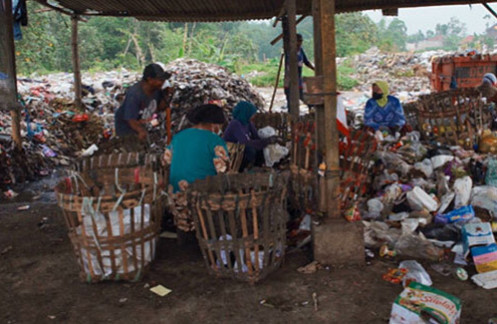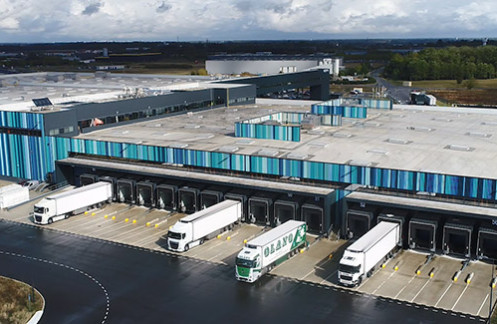Eurodecision has renowned experience and, as early as the tendering phase, we realized that its staff had understood our requirement. Mutual trust was very quickly established with our local teams. The experts formed the equations for our system to build an optimal logistics plan that met our constraints. This would have been impossible to determine without their mathematical tools. Thanks to Eurodecision, we showed the local Indonesian authorities what their waste management system could look like province-wide.Philippe MontagnéProject Director Europe-Africa-Middle-East
Alliance to End Plastic Waste is a global non-profit organization founded in 2019. Its mission is to help end plastic waste by convening a network including over 70 member companies, working closely with partners, government, civil society, investors and communities to address the plastic waste challenge.
The Alliance focuses on improving the collection, sorting, processing, and recycling of plastic waste by implementing projects and investing in innovative solutions that develop or enhance waste management systems. This is its priority because three billion people worldwide still do not have access to adequate waste management services.
Together with its partners, the Alliance has developed a portfolio of over 50 projects across 30 countries, as of June 2022. This includes its flagship programme, Bersih Indonesia: Eliminasi Sampah Plastik, in partnership with the Coordinating Ministry of Maritime and Investment Affairs.
The aim is to deploy the project in phases across three regencies in Java—Malang, Magelang and Sukabumi, serving a combined population of over 6.5 million residents. At full capacity, the three systems expect to collect over 800,000 tonnes of municipal solid waste and divert more than 140,000 tonnes of plastic waste yearly. The public-private partnership builds on the momentum of national efforts by the Indonesian government to enhance waste management capability and capacity across the country.
Phase One of the multi-year initiative has begun in Malang, the second largest regency in east Java. With support of the local government, construction of an end-to-end waste management system, is slated to begin in 2022. When fully operational by 2025, the system expects to comprise five materials recovery facilities and five transfer stations, served by a network of trucks and trikes covering over 3,500 square kilometres, creating some 3,000 jobs in the process.
Well before the programme was launched, detailed feasibility studies were conducted to ensure a well-designed system that optimized operational efficiency, scale and coverage of the network. To support this effort, the Alliance worked with decisional mathematics specialist, Eurodecision.
The partnership began with an initial feasibility survey to test and align on methodology, approach and outcomes. Having delivered well on that first study, the team of Eurodecision consultants proceeded to provide a detailed mapping of the province (population density, waste production per district, etc.), to form an accurate picture of the operating landscape. Data included the daily waste volumes, existing facilities and specifics of the network.
Together with local teams, the mathematics experts pinpointed the optimal location of the treatment sites (transfer stations3 and materials recovery facilities) to minimize flows on the network and to comply with sector constraints. A more comprehensive study enabled districts to be assigned to each site in line with capacity, to size the vehicle fleet required (motorized tricycles and trucks) and also the numbers of drivers needed to make the system work.
The work of Eurodecision contributed towards a thoughtfully designed system that is currently being implemented.
1 STOP Jembrana project, 150,000 inhabitants, household refuse to be collected in time: 20 KTA, including 3 KTA of plastic waste, 100 jobs, $ 4.5M
2 KTA: kilotons per annum






